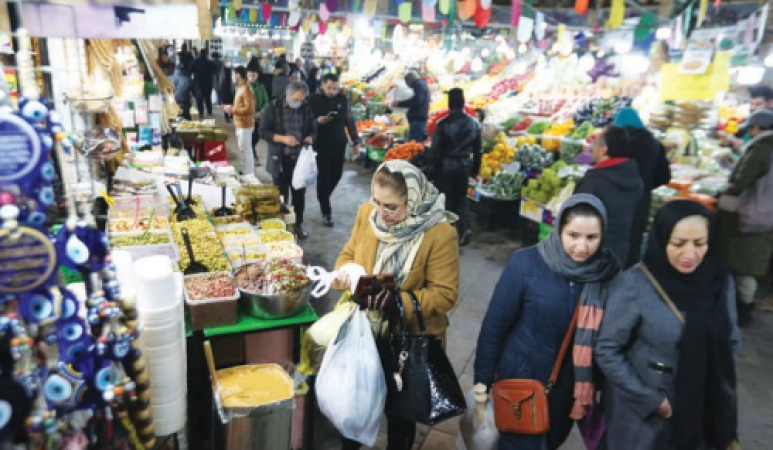
Theran: Nasser Makarem, a prominent Iranian cleric, has spoken out against using violence to coerce women into donning the veil. Since the death of Mahsa Amini, a 22-year-old ethnic Kurd, on September 16 as a result of her arrest for allegedly breaking the regime's dress code for women, there have been widespread demonstrations throughout Iran. Authorities generally refer to the protests as "riots" because hundreds of people have died during them, including numerous members of the security forces.
According to prominent cleric Makarem, "violence and pressure are not effective in the hijab issue."
He was quoted by the IRNA news agency as saying, "The president and ministers should know that they are in a difficult situation; it is true that the enemy is very active, but not all avenues are closed."
Also Read: NATO state unveiled its largest arms deal for Ukraine
People claim that if they can get rid of the veil, the regime's system will be weakened, and the hijab issue is currently linked to political issues, the cleric continued.
Ezzatollah Zarghami, Iran's minister of tourism and cultural heritage, had earlier called for more understanding toward women who choose not to wear the required headscarves.
However, earlier this month, Iran's general prosecutor urged police to "firmly punish any hijab violators." Iran accuses its foreign adversaries, including the US and Israel, of inciting the demonstrations that broke out following Amini's passing while in the care of the nation's morality police.
The cleric's comments coincided with Israeli President Isaac Herzog's call for NATO to adopt a tougher stance toward Iran because of Tehran's supply of drones to Russia for its conflict in Ukraine.
Also Read: German FM under fire for remark about "war with Russia"
During a visit to NATO's headquarters in Brussels, Herzog stated, "The crisis there goes beyond the boundaries of Ukraine, with the Iranian threat now at Europe's doorstep."
"The deception of separation is no longer valid. In addition to credible military deterrence, NATO must take the strongest possible action against the Iranian government through economic, legal, and political sanctions. The symbolic head of state briefed NATO's top decision-making body for the first time on Thursday.
Millions of people's health and welfare continue to be jeopardised by a terrible war, according to Herzog. Our thoughts are with the Ukrainian people as they defend their homes and their nation, he said. Jens Stoltenberg, the head of NATO, claimed to have spoken with Herzog about "our support for Ukraine."
He said that the Ukrainian people were gallantly defending their country, and that NATO allies and partners were supporting their right to self-defense.
Herzog's visit, according to NATO's secretary general, was evidence of the US-led alliance's "deepening partnership" with Israel.
Also Read: Why the US is genuinely concerned about Russia's Wagner in a private military competition
Herzog mentioned enhancing collaboration on energy resilience, space threats, drones, and cyber security. He stated that a new cooperation agreement, which lengthens the period of cooperation and broadens its scope, would be signed by the two parties "in just a couple of months."